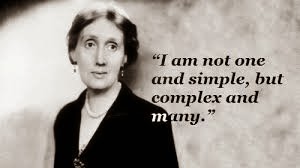"For
at least thirty years, and at almost all times, I have carried a
notebook with me, in my back pocket. It has always been the same kind of
notebook -- small, three inches by five inches, and hand-sewn. By no
means do I write poems in these notebooks. And yet over the years, the
notebooks have been laced with phrases that eventually appear in poems.
So, they are the pages upon which I begin."
~ Mary Oliver, "Pen and Paper and a Breath of Air"
As an antiquarian at heart, there are few writers in the contemporary world with whom I can relate. A notable exception -- one who I've come to appreciate as a great heroine of the literary world -- is Mary Oliver. Though she is best known as a poet, I confess that I have actually not yet been acquainted with her poetry. But her nonfiction is brilliant. If I could make my writing look like any author's in the world, it would be hers. Last summer, I encountered a little book of essays by her in a small bookstore. (Actually, it was a whole shelf, and with a skimpy wallet I had to struggle to settle for one selection.) The collection I bought was called Blue Pastures, and within days I had devoured all its words and wisdom. Oliver is an absolute sage in presenting the writer's day-to-day existence. Her essays in Blue Pastures are very much about the process and journey of being a writer. What I loved most about them was their eloquent manner of portraying the writer's life as something intimate, something contemplative. We see her at her desk frowning at interruptions, or outside wandering the wilderness, or as a young girl absorbing Whitman -- and always as a reflective, almost prayerful kind of scholar. It as though her whole daily universe was writing: the observation, the inspiration, the creation of it. In this sense, she has shown the habitualness of writing, how much it must saturate the writer's every moment. One essay in particular stood out to me: "Pen and Paper and a Breath of Air," which provides excerpts of a small pocket notebook she keeps for moments of inspiration. For about a year now, I've kept a similar notebook -- mine pink and tattered from being stuffed haphazardly in purses and backpacks of all capacities. Whenever a phrase haunts me, or a certain sight I pass strikes me, I whip it out to jot down whatever words I can to record the idea. (This usually occurs while driving; I can't tell you how many times I've had to pull over to write even two words down.) In reading "Pen and Paper," I was glad to see this tradition validated by another, established writer. But more importantly, it struck me how much Oliver and I share -- if I dare presume so much -- in regards to the dailiness of our writing. There is no moment, to my knowledge, when the writing process stops for me; it is always happening. True, the times I physically sit down to write are relatively sparse. My perfectionist nature is such that the actual practice of putting words into a word document is one to which I must devote an entire day -- hence, it is not a frequent ritual. But for me, writing is more than simply that one step of physical production. It's a habit, an addiction, a constant mode of mind. I see sunlight -- I appreciate. I read a book -- I contemplate. I hear a phrase in my mind -- I am inspired. These are the necessary steps in writing, which take about 80% of the entire procedure. What is finally written, what finally goes on paper (or, on the computer) is something I've
accumulated throughout the day. The process never stops. To be an artist -- and I truly mean be, in terms of identity and existence -- one's artmaking must never end. It must be the lens through which one sees and feels everything, even if only on the subconscious level. It ought to permeate every aspect of our life. It is very much like being in love: even when we are not physically embracing our beloved, love never clocks out, it is always there. Oliver's habits as a notebook-carrying writer – her constancy in artmaking, her series of endless daily rituals – comprise a way of life I have yet to perfect. Yet it’s one I am striving for always. Or rather, better to say that my environment is demanding it always.
To quote another recent favorite female author, Virginia Woolf -- that frustrating but magnificently deep writer of the unconscious -- "Passing, glimpsing, everything seems accidentally but miraculously sprinkled with beauty" ("Street Haunting"). Everything I encounter calls for attention. Every image on the street is a detail -- who's to say how vital a detail -- in a story I don't know. Every stranger or even friend I pass by, as I catch snippets of their conversation or notice an expression on their face, is carrying a life-story, one that I will probably never know to the full -- yet, "into each of these lives one could penetrate a little way." These observations are fragments, fragments of stories everywhere. Pieces that the writer gathers and ties together to make something whole out of it all. At the end of the day, every fragment of my life is a piece of the story I am longing to write.
Emma Moser
Meet her on Facebook
and Twitter



